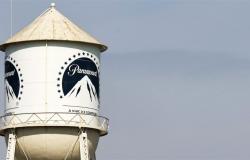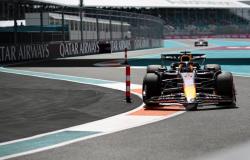If you are an astronaut and you are shot into space, 24-carat wisdom is expected of you. Preferably prophecies or lines of poetry of the type that fit on a tile. What do you say the moment you can see the earth? Muhammed Faris, the only astronaut Syria ever produced, was allowed to give the answer to the president of his country. “I can see our beautiful beaches,” Faris said during a live connection with state television. ‘I see our beautiful green mountains. It’s incredibly beautiful.’
Whether he could actually see green on every mountaintop is doubtful, but this was Syria in 1987, and Faris was part of a propaganda show. He wouldn’t have gotten away with saying that the beaches of Latakia were a bit disappointing, so high in space, that the mountains were barely visible to the naked eye and that the president was just a tiny mortal from the cosmos .
About the author
Jenne Jan Holtland is Middle East correspondent for de Volkskrant. He lives in Beirut. Previously he was a correspondent for Central and Eastern Europe.
As the first Syrian (and second Arab) in space, Faris became something of a national hero upon his return. Streets, a school and an airport were named after him. After the revolution that broke out in 2011, he fled his country. He died last Friday in the Turkish city of Gaziantep, aged 72, as a result of medical complications following a heart attack.
Unequal battle
Faris, who came from a simple family in Aleppo, rose to the rank of pilot in the Syrian air force. His boys’ book began in the mid-1980s. He was allowed to undergo training with sixty other recruits at a cosmonaut center outside Moscow. These were the years of the Cold War, the relationship between Syria and the Soviet Union was blossoming. In exchange for political support for President Hafiz al-Assad (the father of the current dictator Bashar), the Russians had received a maritime base in the port city of Tartous.
Of the sixty candidates, four ultimately remained. But on spaceship Soyuz TM-3, bound for space station ‘Mir’, there was only room for one Syrian. Besides Faris himself, a Sunni Muslim, there were one Druus (a mystical, semi-Islamic faith) and two Alawites (a split within Shia Islam).
The good listener knew: this was an unequal battle. The Assad dynasty was (and is) itself Alawite, and by definition favored its own group. Faris could shake it. In multi-religious Syria, Sunnis like him were seen as a threat by the regime. A special delegation flew from Damascus to ‘help’ the Soviets choose the right man. “It would have been easier for the Syrians to choose me as their new prime minister than to make me their first astronaut,” Faris joked afterwards.
He became one anyway, simply because the Russians saw that he was the best. Faris spent nearly eight days in space before flying back to Earth aboard a second spacecraft. “If you have seen the whole world through your window, then there is no ‘us and them’ and no politics,” he said years later to The Guardian. President Assad gave him a speech that he was expected to read on TV. But Faris improvised, much to the president’s irritation.
Flight to Turkey
A medal that Faris was supposed to wear upon his return was given to him in a crappy box. In his own words, Faris asked the president to release money for the establishment of a scientific space institute so that other compatriots could follow his example. Assad didn’t see any point in it. ‘He (Hafiz al-Assad, ed.) wanted to keep his people uneducated and divided’, said a bitter Faris years later. ‘This is how dictators stay in power.’
Assad died in 2000, after which his son Bashar took over. Eleven years later, the Syrian uprising broke out, and Faris took to the streets with his wife. When it became clear that there would be no reforms, the family slipped across the border to Turkey, where the former astronaut joined the Syrian opposition. In old age he became a popular figure in the exile community (‘little Syria’) of Istanbul; he even received Turkish citizenship.
“My dream is to sit in the garden in my own country and watch my children play outside without fear of bombs,” Faris said several years ago. ‘I just wanted a better future for my children, but foreign influences on the revolution ruined everything. That is very difficult to bear.’
What he did not dare to do during his lifetime, returning to his own country, did happen posthumously. Last weekend he was buried in a cemetery in a part of northern Syria controlled by pro-Turkish groups. Thousands of admirers joined the procession. His coffin was draped in the green, white and black of free Syria.
3x Muhammed Faris
There is one Arab who preceded Faris as an astronaut. That was Saudi Prince Sultan bin Salman Al Saud in 1985. Unlike Faris, however, he was not a trained astronaut and owed the honor to his influential background.
Faris turned down offers to live in Moscow. He was outraged by President Putin’s support for Assad in the Syrian civil war. ‘The Russians are murderers and criminals. They have the blood on their hands of more than two thousand civilians.’
He also did not want to move to Europe or the US, saying he did so for reasons of principle. ‘In the Syrian civil war they did not intervene when necessary. They are against my ideals, so I can’t live there.’
Tags: Space hero obstructionist Muhammed Faris dreamed free Syria death
-





